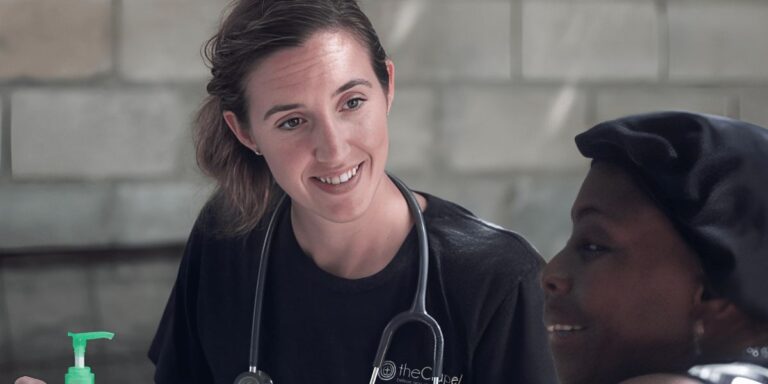
A career in health and social care is a pathway to making a real difference in people’s lives. One such career, which plays a key role in promoting health through diet and nutrition, is that of a Dietetic Assistant. This role supports dietitians in offering nutritional advice and creating diet plans to improve people’s health. If you are passionate about food, nutrition, and wellbeing, and enjoy working with people, this could be the ideal career for you.
What You Need
Educational Requirements
To begin your journey as a Dietetic Assistant, you need a basic educational foundation. Here’s what you’ll need:
- GCSEs: Most employers require a minimum of five GCSEs (grades A-C/9-4) including English, Maths, and a science subject. These are the basic entry requirements for many healthcare careers.
- Level 3 Qualifications: Although not always necessary, having A-levels or a Level 3 qualification, such as a BTEC National Diploma in Health and Social Care or Applied Science, can be beneficial. It demonstrates a deeper understanding of relevant subjects.
- Further Studies: While not mandatory, undertaking further studies, such as a foundation degree or higher education qualification in dietary or nutritional sciences, can give you an edge in the job market.
Gaining Relevant Experience
Experience in a healthcare setting is invaluable. It can be obtained through:
- Volunteering: Volunteering at hospitals, care homes, or community health projects can provide practical experience and a real insight into the role.
- Internships/Placements: Some educational courses offer placements or internships that allow you to work alongside healthcare professionals.
Certifications and Checks
- DBS Check: You will likely need to undergo a Disclosure and Barring Service (DBS) check. This ensures you have no criminal record that would prevent you from working with vulnerable populations.
- First Aid Certification: This is not always required, but having a first-aid certification can be advantageous. It shows a commitment to health and safety.
What Does It Take and Skills Needed to Be a Dietetic Assistant
Personal Qualities
To succeed as a Dietetic Assistant, you need specific personal qualities:
- Compassion and Empathy: You will work with people who may have various health issues. Understanding and empathising with their needs is important.
- Communication Skills: You must communicate effectively with patients and colleagues. This includes explaining dietary information in a way that is easy to understand.
- Attention to Detail: Precision is important, especially when assisting with dietary assessments and plans.
- Teamwork: You will work closely with dietitians and other healthcare professionals. Being able to function well in a team is essential.
- Organisational Skills: You will need to manage your time effectively and handle multiple tasks at once.
- Problem-Solving Skills: You must be resourceful and able to think essentially to solve issues that may arise.
Technical Skills
Certain technical skills are also necessary:
- Dietary Knowledge: A basic understanding of nutrition and dietary principles is essential. You will need to know about food groups, dietary requirements, and how diet affects health.
- IT Skills: You should be proficient in using software for data entry, record-keeping, and preparing educational materials.
What You Will Do: Duties of a Dietetic Assistant
As a Dietetic Assistant, your day-to-day tasks will vary. However, common duties include:
Supporting Dietitians
- Assisting with Diet Plans: You will help prepare personalised diet plans based on the dietary needs and health conditions of patients.
- Nutritional Assessments: You will assist in gathering and collating patient data and dietary histories.
- Preparing Educational Materials: You will create resources to help educate patients and healthcare staff about nutrition.
Patient Interaction
- Providing Dietary Advice: Under the supervision of a registered dietitian, you will offer dietary advice and education to patients.
- Telephone Support: You may provide follow-up support and answer patient queries over the phone.
- Group Education Sessions: You might facilitate group sessions on nutritional topics.
Administrative Tasks
- Maintaining Records: Keeping patient records up-to-date is a key part of the job.
- Scheduling Appointments: You will manage appointments and dietary clinics.
- Assisting in Research: Helping with data collection or literature reviews for research projects.
Monitoring and Evaluation
- Observing Progress: You will monitor and record patients’ progress and report your findings to dietitians.
- Evaluating Dietary Plans: You might assist in evaluating the effectiveness of dietary plans and make recommendations for adjustments.
Health Promotion
- Community Programmes: You could help organise and deliver community nutrition education programmes.
- Health Campaigns: Participating in health promotion activities, such as healthy eating campaigns, is also part of the role.
The Work Setting for a Dietetic Assistant
Hospitals
Many Dietetic Assistants work in hospitals. In this setting, you will support dietitians in developing and implementing nutritional plans for inpatients and outpatients. Working in a hospital involves close collaboration with other health professionals and managing nutritional care in various departments.
Community Health
In community health services, you may work more independently. This can involve visiting patients in their homes, community centres, or local clinics. Your focus might be on managing long-term conditions like diabetes or coeliac disease.
Care Homes
Dietetic Assistants in care homes focus on improving and maintaining the nutritional status of residents. Many of these patients will have special dietary needs due to age-related conditions or other health issues.
Schools and Educational Institutions
Some Dietetic Assistants work in schools or other educational institutions. Here, the role involves promoting healthy eating and managing dietary needs for students with specific health requirements.
Expected Pay for a Dietetic Assistant
Pay Scale
Dietetic Assistants typically fall within the NHS Agenda for Change pay scale. As of 2023:
- Band 3: Starting salary ranges from £22,000 to £24,000 per annum.
- Additional pay progression: Within the band based on experience and added responsibilities.
Additional Benefits
- Pension: Access to the NHS Pension Scheme or an equivalent.
- Holiday Entitlement: Starting with around 27 days of annual leave plus public holidays, increasing with length of service.
- Professional Development: Employers often offer opportunities for ongoing training and may support further education.
Career Progression Opportunities for a Dietetic Assistant
Advancing in Your Role
By developing further skills and gaining more experience, you can advance within your role:
- Further Education and Training: Additional training or education, such as a foundation degree or higher qualifications in dietetics or nutrition, can enhance your skills and knowledge.
- Specialisation: Focusing on specific areas such as paediatrics, sports nutrition, or diabetes care can allow you to take on more specialist roles within dietetics.
Promotions
With experience and further qualifications, you can progress to senior assistant or lead assistant roles. These positions involve greater responsibility and leadership within the team.
Becoming a Dietitian
One viable pathway is to become a fully qualified dietitian. This usually requires:
- Degree: Obtaining a degree accredited by the British Dietetic Association (BDA).
- Registration: Registering with the Health and Care Professions Council (HCPC).
Some employers might offer support or sponsorship for existing employees to pursue this route.
How to Become a Dietetic Assistant FAQ
What qualifications do I need to become a Dietetic Assistant?
You typically need at least five GCSEs, including English, Maths, and Science. Having A-levels or a Level 3 qualification in a relevant field is advantageous. Practical experience and passing a DBS check are also important.
What are the key skills required for this role?
Essential skills include compassion, effective communication, attention to detail, teamwork, organisational skills, problem-solving ability, dietary knowledge, and IT proficiency.
What tasks does a Dietetic Assistant perform daily?
Your duties can include supporting dietitians with assessments, providing dietary advice, preparing educational materials, maintaining records, scheduling appointments, assisting with research, monitoring progress, and participating in health promotion activities.
Where do Dietetic Assistants work?
They can be employed in hospitals, community health services, care homes, and educational institutions, among other healthcare settings.
What is the expected salary?
Salaries typically range from £22,000 to £24,000 per annum, with potential for progression within the NHS pay bands. Additional benefits include pension schemes and holiday entitlement.
How can I progress in this career?
Progression can be achieved through further training, gaining more experience, specialising in specific areas, or advancing to higher assistant roles. Becoming a registered dietitian is another long-term career progression option.
Is this role physically demanding?
While the role can be demanding and involve being on your feet for long periods, it also varies depending on the setting and specific duties.
Do I need to be registered with a professional body?
Dietetic Assistants do not need to be registered, but you may need to work under the supervision of a registered dietitian.
Can I work part-time as a Dietetic Assistant?
Yes, part-time positions are available, offering flexibility to fit around other commitments or personal circumstances.
What future trends could impact this role?
Increasing awareness of nutrition’s role in health, an ageing population, and a rise in chronic conditions like diabetes might increase demand for dietetic services, positively impacting the role.
Final Thoughts
Starting a career as a Dietetic Assistant offers a unique opportunity to influence people’s health through nutrition. It requires a blend of technical knowledge, personal skills, and a passion for healthcare.
The role is rewarding and provides many opportunities for career progression, whether you aim to advance within the assistant role or aspire to become a fully qualified dietitian.
With the right education, skills, and experience, you can make a significant impact in the health and well-being of your community.
Subscribe to Newsletter
Get the latest news and updates from Care Learning and be first to know about our free courses when they launch.






